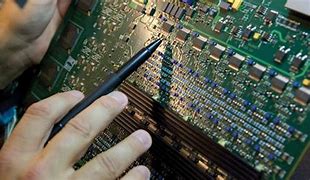Table of Contents
Introduction to Electrical & Electronics Engineering
Electrical & Electronics Engineering involves the study and application of electrical principles to develop innovative solutions. From designing power systems to creating electronic devices, engineers in this field play a crucial role in shaping our interconnected world.
Educational Pathway
To become an Electrical & Electronics Engineer, you need to follow a structured educational path:
Pursue a Bachelor’s Degree in Electrical Engineering
Start by enrolling in a reputable engineering institute or university offering a Bachelor’s degree in Electrical Engineering. This foundational education will provide you with a solid understanding of electrical concepts.
Specialize in Electronics Engineering
During your studies, consider specializing in Electronics Engineering. This allows you to delve deeper into areas like microelectronics, digital systems, and communication technologies.
Gaining Practical Experience
Theory is important, but hands-on experience is equally vital:
Internships and Industrial Training
Participate in internships and industrial training programs. These experiences expose you to real-world projects and industry practices.
Hands-On Projects
Undertake personal projects to apply your knowledge practically. Build circuits, design prototypes, and work on mini-projects to enhance your skills.
Master’s Degree (Optional)
Consider pursuing a Master’s degree in Electrical or Electronics Engineering:
Advantages of Pursuing a Master’s
A Master’s degree can lead to more specialized job roles and higher earning potential.
Research Opportunities
Master’s programs often involve research projects that contribute to the field’s advancements. Keep up to current on the newest software trends.
Skill Development
Develop a range of skills for a successful career:
Technical Skills
Master programming languages, circuit design software, and simulation tools.
Soft Skills
Enhance communication, teamwork, and problem-solving abilities. These skills are valuable in a collaborative engineering environment.
Keeping Up with Industry Trends
Electrical & Electronics Engineering is a dynamic field:
Lifelong Learning
Commit to continuous learning. Read research papers, online articles, and industry journals to stay informed.
Industry Conferences and Seminars
Attend conferences and seminars to learn about emerging technologies and network with experts.
Building a Portfolio
A strong portfolio sets you apart:
Showcasing Projects
Create a portfolio showcasing your projects, both academic and personal. Include detailed explanations and visuals.
Creating an Online Presence
Build an online presence through a personal website or professional networking platforms.
Job Opportunities
Numerous career paths await you:
Electrical Engineer
Work on designing and maintaining electrical systems, power generation, and distribution networks.
Electronics Engineer
Design, develop, and test electronic components, devices, and systems.
Systems Designer
Create integrated systems that combine electrical and electronic elements.
Networking and Professional Organizations
Networking is essential for growth:
Joining Engineering Societies
Become a member of organizations like the Institute of Electrical and Electronics Engineers (IEEE).
Online Forums and Groups
Participate in online forums to discuss ideas, seek advice, and connect with fellow engineers.
Resume Building and Job Search
Craft an impressive resume:
Crafting an Impressive Resume
Highlight your education, skills, projects, and any internships or training you’ve completed.
Navigating Job Portals
Use online job portals to find openings that align with your skills and interests.
Interview Preparation
Be ready for interviews:
Technical Interviews
Expect questions related to circuits, programming, and problem-solving.
Behavioral Interviews
Prepare for questions about teamwork, leadership, and handling challenges.
Landing Your First Job
Securing your initial role requires effort:
Intern-to-Full-Time Opportunities
Many interns transition to full-time positions within the same company.
Entry-Level Positions
Start with entry-level roles to gain industry experience.
Continuous Growth and Advancement
Keep growing in your career:
Advanced Certifications
Consider certifications to specialize in areas like renewable energy or automation.
Climbing the Career Ladder
Work diligently to move up to roles like senior engineer or project manager.
Challenges in the Field
Be prepared to face challenges:
Technological Changes
Stay adaptable as technology evolves rapidly.
Competition
The field is competitive, so continuous improvement is crucial.
Conclusion
Becoming an Electrical & Electronics Engineer in India requires dedication, education, and a passion for innovation. By following a structured path, gaining practical experience, and staying up-to-date with industry trends, you can build a successful and fulfilling career in this dynamic field.
FAQs
Q1: How long does it take to get a job as an Electrical and Electronics Engineer?
A: It typically takes four years to complete a Bachelor’s degree and additional time for specialization or a Master’s degree.
Q2: Are internships important for this career?
A: Yes, internships provide hands-on experience and exposure to real-world projects, enhancing your skills and employability.
Q3: What are some popular industries for Electrical & Electronics Engineers?
A: Industries include telecommunications, power generation, consumer electronics, and automation.
Q4: How do I stay updated with evolving technologies?
A: Attend conferences, participate in online courses, and read industry publications.
Q5: What is the average salary range for professionals in this field?
A: Salaries vary based on experience, specialization, and location, but they generally range from moderate to high.




